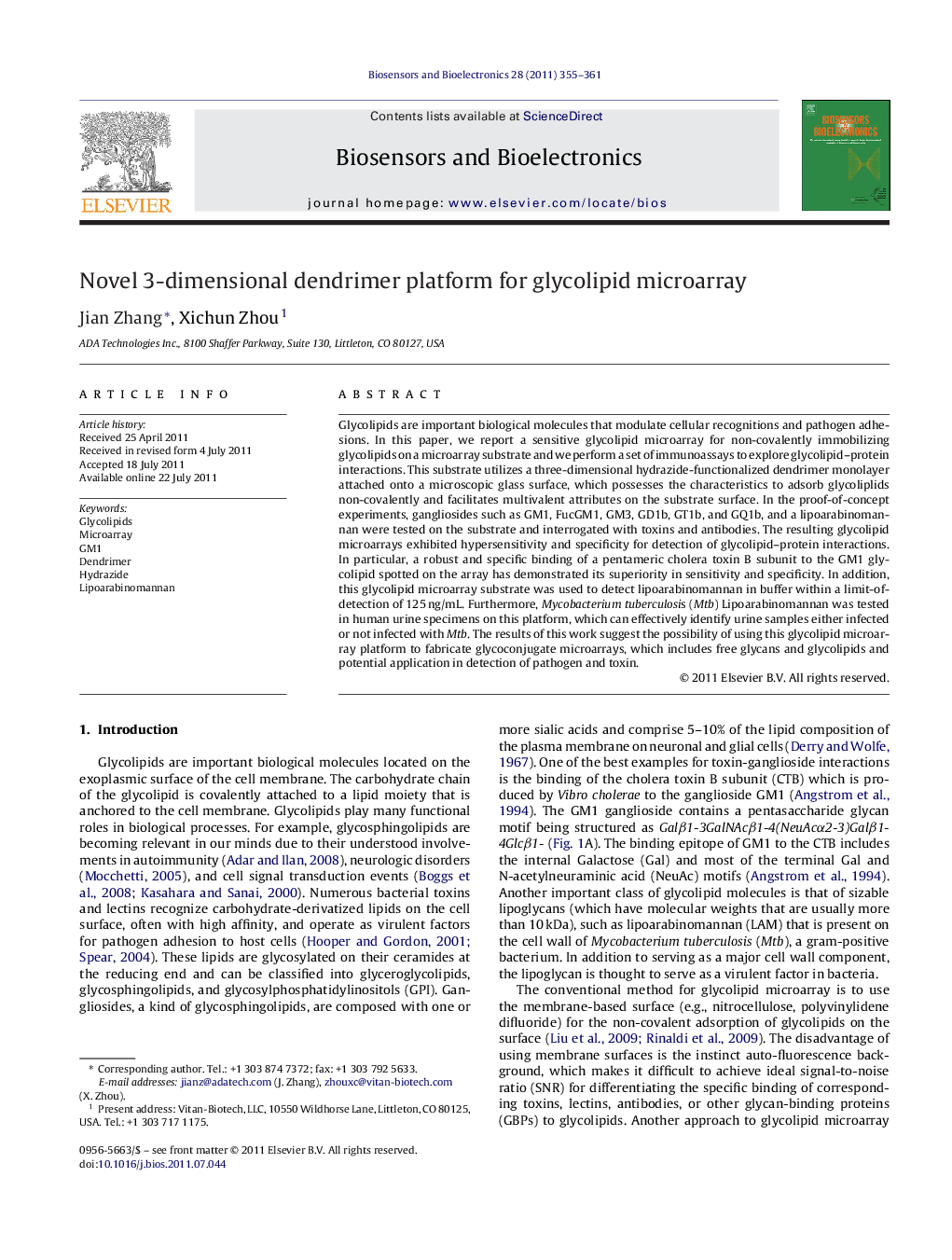| Article ID | Journal | Published Year | Pages | File Type |
|---|---|---|---|---|
| 10429496 | Biosensors and Bioelectronics | 2011 | 7 Pages |
Abstract
Glycolipids are important biological molecules that modulate cellular recognitions and pathogen adhesions. In this paper, we report a sensitive glycolipid microarray for non-covalently immobilizing glycolipids on a microarray substrate and we perform a set of immunoassays to explore glycolipid-protein interactions. This substrate utilizes a three-dimensional hydrazide-functionalized dendrimer monolayer attached onto a microscopic glass surface, which possesses the characteristics to adsorb glycoliplids non-covalently and facilitates multivalent attributes on the substrate surface. In the proof-of-concept experiments, gangliosides such as GM1, FucGM1, GM3, GD1b, GT1b, and GQ1b, and a lipoarabinomannan were tested on the substrate and interrogated with toxins and antibodies. The resulting glycolipid microarrays exhibited hypersensitivity and specificity for detection of glycolipid-protein interactions. In particular, a robust and specific binding of a pentameric cholera toxin B subunit to the GM1 glycolipid spotted on the array has demonstrated its superiority in sensitivity and specificity. In addition, this glycolipid microarray substrate was used to detect lipoarabinomannan in buffer within a limit-of-detection of 125Â ng/mL. Furthermore, Mycobacterium tuberculosis (Mtb) Lipoarabinomannan was tested in human urine specimens on this platform, which can effectively identify urine samples either infected or not infected with Mtb. The results of this work suggest the possibility of using this glycolipid microarray platform to fabricate glycoconjugate microarrays, which includes free glycans and glycolipids and potential application in detection of pathogen and toxin.
Related Topics
Physical Sciences and Engineering
Chemistry
Analytical Chemistry
Authors
Jian Zhang, Xichun Zhou,
